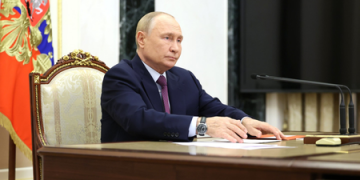The issues relating to Article 35A are now being heard in the Supreme Court. A set of petitions are seeking a repeal of the Article to the effect that the state is divested of the existing rights to decide, mainly, on who qualifies as a permanent resident (PR) of the state and who can own property there.
These rights had been accorded by way of special status to Jammu and Kashmir that allowed a unique kind of autonomy guaranteed to it under the Indian Constitution. Effectively, what is sought to be questioned is the denial of right for outsiders to make Kashmir their home.
Jammu and Kashmir has been on the boil for over quarter of a century. The drift started in 1989 when, famously, the daughter of PDP leader and then Union home minister Mufti Mohd Sayeed was kidnapped and the Centre, in return, caved in to the demand of separatists to release a group of militants from jails.
The Kashmir scenario is getting progressively aggravated, not only because of the backing the separatists get from Pakistan. Apart from this, the other and more important reason is that successive Union and state governments have never made an effort to woo the common Kashmiri.
Also, the promulgation of AFSPA and the constant effort to reach a solution through military operations is failing over and over again. Yet the Indian authorities are incapable of working out an alternative.
While the BJP that rules the state along with PDP and also runs government at the Centre is not directly engaged in the legal tussle now, the party is firmly against special status for Jammu and Kashmir.
The Congress party has been careful on the issue and has not backed the call made by party functionary and former Union minister P Chidambaram for more autonomy for Kashmir. Separatists have, understandably, been incensed over the hearing in the Supreme Court and vowed to fight things out in the street if the apex court allows repeal of the special provisions.
Chidambaram feels a repeal of the special provisions for Kashmir will only further complicate matters in the Valley and set the people against India. Unfortunately, Chidambaram was one of the prime supporters of military action in the valley. It is he who constantly, as Union Home Minister, forced the breakdown of all normal parleys that were initiated due to various reasons. The Modi government has simply followed in his footsteps.
The provisions of Article 35A was enacted in Kashmir in 1927 during the time of Dogra king Maharaja Hari Singh’s period to protect jobs for locals, mainly Kashmiri pandits who were opposed to induction of government staff from neighbouring Punjab. Article 35A in the post Independence period ensured continuation of the same system.
It provided PR status to those who lived in that state before 1954 or selectively to those who lived there for more than 10 years thereafter. Issues of women’s rights are also involved as the Article denies right to own property to Kashmiri women who marry an ‘outsider’, and also to their children.
Non-residents are not allowed to take up government jobs and such students are denied scholarships and similar benefits under the contentious Article. The Article also allows the state to frame laws in certain respects, which cannot be challenged in courts. All these make Kashmir a state separate from the usual concept of an Indian state.
If changes were required, it could have been addressed as a socio-political call and governmental steps should have followed. However, it is often noted that the buck is passed on from the political and administrative realms to the courts.
This is simply an abdication of responsibility. Parties and governments should rather show the courage to take the bull by its horns and change situations for the better. That is governance.







































